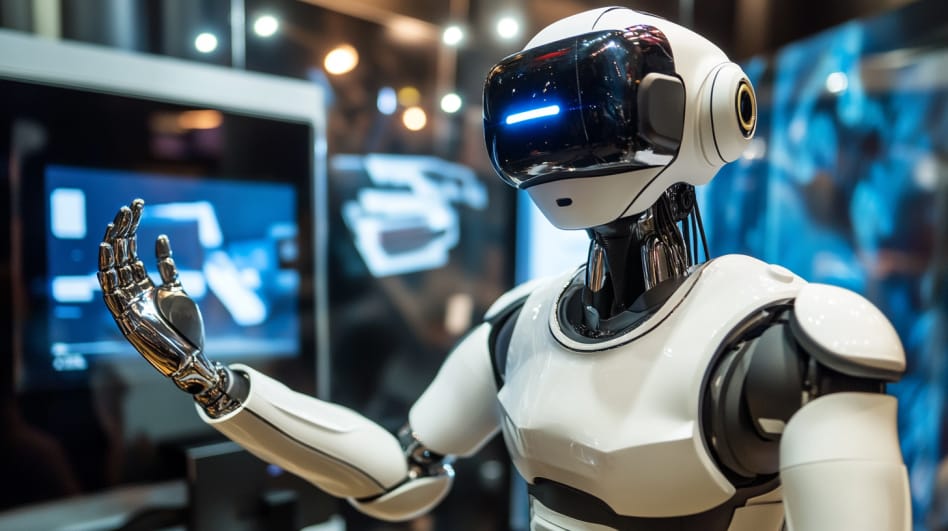- AI Trailblazers
- Posts
- AI Trailblazers Growth Summit & Navigating AI this Week
AI Trailblazers Growth Summit & Navigating AI this Week

Welcome to this week’s AI Trailblazers Newsletter! Thank you for making us your go-to source for relevant AI business news. In this edition, we share the final details of the upcoming AI Trailblazers Growth Summit, as well as more on the slowing progress on LLMs. We also explore the interesting diagnosis AI tools being used in medicine along with more on the intensive energy demands AI is having on global electricity grids. Enjoy more below.
AI Trailblazers Growth Summit - December 3rd
We are excited to share that the AI Trailblazers Growth Summit will be held on Dec 3rd in New York City. It marks our seventh gathering of the year—an incredible milestone for this dynamic series.
We are honored to welcome guests from globally renowned brands, including Amazon, Citibank, Estée Lauder, Google, Mastercard, NYSE, PepsiCo, Procter & Gamble, Publicis, Ralph Lauren, Samsung, Shiseido, Stagwell Global, TikTok, and Unilever, among many others. We're also happy to share that Adweek is serving as our media partner for this summit.
Last chance to register! - https://lu.ma/ecnlt6ix
Select speakers at the summit include:
Alex Craddock, Chief Marketing Officer & Content Officer, Citibank
Amit Shah, CEO, Instalily & Co-Founder AI Trailblazers
Andrea Zaretsky, CMO, Morgan Stanley Wealth Management
Chris Wiggins, Chief Data Scientist, The New York Times
Greg Kahn, General Partner GK Digital Ventures & Co-Founder AI Trailblazers
Greg Shove, CEO, Section School & Founder, Machine & Partners
Hasard Lee, Decorated fighter pilot & International bestselling author
Helen Lin, Chief Digital Officer, Publicis Groupe
Jay Altschuler, SVP Global Media & Agency Relations, Mastercard
Joe Benarroch, Head of Content, Media Partnerships, & Distribution, NYSE
Jonathon Roberts, Chief Innovation Officer, Dotdash Meredith
Joe Marchese, General Partner, Human Ventures
Karen Feldman, SVP & Chief Marketing Officer, Iron Mountain
Lambert Hogenhout, Chief Data and AI, United Nations
Mark Howard, Chief Operating Officer, Time Inc.
Michael Lacorazza, Chief Marketing Officer, U.S Bank
Marc Mathieu, SVP AI Transformation, Salesforce
Michaela Ternasky-Holland, Emmy Award-Winning Nominated Director
Ricky Abbott, President Americas, Transmission Inc
Shiv Singh, Investor, Advisor, Board Member & Co-Founder AI Trailblazers
Steven Gerber, President & COO, Zeta Global
Wizdom Powell, PhD, Chief Purpose Officer, Headspace
Yang Adija, SVP, Digital League Business Operations at Turner Sports
The AI Trailblazers Growth Summit agenda features keynotes, panels, and educational workshops exploring AI's transformative influence on marketing, content creation, and media. Topics include AI-driven personalization, Agentic AI, AI ROI in business, generative AI content strategies, and AI’s impact on video production.
View the agenda and register now.
A big thank you to our partners - Optimizely, Transmission, Writer.com and Zeta Global—for their support in bringing the AI Trailblazers Growth Summit to life. Their collaboration plays a key role in shaping this summit.
From Terminator to Taskmasters: The Future of AI

Salesforce CEO Marc Benioff recently shared his perspective on the future of artificial intelligence, suggesting that the era of large language models (LLMs) may have reached its peak. Speaking on The Wall Street Journal's "Future of Everything" podcast, he argued that the next wave of AI innovation lies in autonomous agents—tools designed to perform tasks independently and transform how businesses operate. Benioff highlighted the practical potential of these agents while cautioning against inflated claims about AI’s capabilities, often fueled by public fascination and pop culture references. Here’s a breakdown of his key insights.
Marc Benioff's Perspective on AI's Future: Salesforce CEO Marc Benioff believes we've reached the "upper limits" of large language models (LLMs) in AI advancements. He argues the next frontier lies in autonomous agents capable of executing tasks independently, such as managing sales or marketing operations. Benioff suggests that while LLMs have captivated public imagination, autonomous agents will have a greater impact on business efficiency and transformation.
Autonomous Agents in Action: Benioff emphasizes that tools like Salesforce's AI agents already help automate customer service, while companies like OpenAI and Nvidia are advancing similar technologies. These agents can perform specialized tasks, such as writing code or booking travel, offering significant potential to augment productivity and improve business margins. Nvidia CEO Jensen Huang envisions a future where humans work alongside "AI employees," enhancing workplace efficiency and customer relationships.
Public Perception vs. Reality: Benioff critiques exaggerated claims by some AI evangelists about curing cancer or solving climate change, calling them misleading. He stresses the importance of focusing on practical, current applications of AI that can drive tangible benefits for businesses. The general public, influenced by movies like Terminator and Minority Report, may have unrealistic expectations about AI's present capabilities.
AI in Popular Culture and Ethical Concerns: Films such as Minority Report and WarGames have shaped public perceptions of AI, raising both excitement and fears about its potential. Benioff acknowledges these cultural references but warns against equating them with today's technological reality. He highlights the ethical implications of overstating AI's abilities, urging responsible communication about its limitations and opportunities.
AI Trailblazer Takeaways: Marc Benioff seems to be one of the few in the camp of “managing expectations” when it comes to AI. In the short term, he may be more right than wrong as the search for practical applications with AI continues, but the long term potential continues to shine bright.
AI Trick: Diagnosing Diabetes with Video Snap

A groundbreaking AI-powered tool may revolutionize the way high blood pressure and diabetes are diagnosed, offering a quick, no-contact alternative to traditional methods. Combining high-speed video with advanced algorithms, the system detects subtle changes in blood flow to identify health issues without the need for blood tests or wearable devices. While still in its early stages, this innovative technology holds promise for making at-home health monitoring more accessible and efficient. Here’s a closer look at the study and its implications.
AI-Powered Screening Tool Overview: Researchers have developed a no-contact system using high-speed video and AI algorithms to detect high blood pressure and diabetes. This innovative approach eliminates the need for blood tests, cuffs, or wearable devices, offering potential for at-home health monitoring. The tool captures subtle changes in blood flow in the face and hands to identify health issues early.
Accuracy and Effectiveness: The tool demonstrated 94% accuracy in detecting stage 1 hypertension and up to 86% accuracy in identifying abnormal blood pressure in shorter test durations. For diabetes detection, the system achieved a 75% accuracy rate compared to traditional hemoglobin A1c tests. These findings highlight promising results, though further refinements are needed to enhance reliability and usability.
Future Potential and Development: Researchers aim to simplify the system using affordable sensors and make it compatible with everyday devices like smartphones or mirrors. Additional features, such as algorithms to account for arrhythmias, are being considered to improve accuracy. Once refined and FDA-approved, this tool could revolutionize non-invasive diagnostics for chronic health conditions.
Caveats and Validation Needs: Experts caution that while the results are promising, the technology requires more validation across diverse populations and settings. Preliminary tests were conducted primarily on Asian adults under controlled conditions, limiting generalizability. Reliable protocols and further testing are crucial before widespread adoption of the tool for clinical or personal use.
AI Trailblazer Takeaways: Imagine a world where a patient can be diagnosed by a simple scan. It may sound like something out of Star Trek, but this research suggests that we are about to boldly go where no one has gone before.
Gigawatts Galore: The Energy Battle Behind AI’s Boom

The rapid expansion of data centers driven by artificial intelligence and cloud computing is creating unprecedented energy demands, with some facilities consuming more power than entire cities or states. As developers race to secure land and energy, balancing reliability, scalability, and environmental goals becomes increasingly challenging. This transformation is reshaping energy markets and raising questions about how to sustain growth while mitigating its environmental impact.
AI and Cloud Computing Drive Surging Power Demand
Data centers powering artificial intelligence and cloud computing are consuming electricity at unprecedented rates, surpassing the energy use of cities and even states. Facilities increasingly require gigawatts of power, with one campus consuming energy equivalent to 1.8 million people. Developers face challenges in finding sufficient land and power to support these sprawling campuses.Renewables Fall Short; Natural Gas Bridges the Gap
Although technology companies favor renewable energy, wind and solar cannot meet the 24/7 reliability data centers demand. Natural gas remains a crucial power source, despite its impact on carbon emissions. Investments in nuclear energy, such as small modular reactors, are emerging as long-term solutions but face cost and timeline hurdles.Shifting Geographies and the Community Impact
With land and power constraints in hubs like Virginia, data centers are expanding into new regions such as Texas and Arizona. Developers must ensure these facilities do not strain local grids or increase electricity costs for nearby communities. Collaboration with utilities and investments in grid reliability are essential to make data centers an asset rather than a liability.The Environmental Trade-Offs of Data Center Growth
Natural gas use for data centers disrupts emissions reduction goals in the short term. Developers aim to offset this impact through future reliance on renewables, battery storage, and AI-driven efficiency. However, the industry's rapid growth presents a delicate balance between meeting energy needs and maintaining environmental commitments.
AI Trailblazer Takeaways: While AI has the potential to revolutionize our world, it does come with the cost of massive energy consumption needs. This thirst for electricity will drive the debate of whether the juice is worth the squeeze as global emissions agreements look to be violated.
Quote of the Week
“AI and machine learning are the next big things. The reality may not have fully hit us yet, but it’s going to, and when it does, it will be massive.”
- Sundar PIchai, CEO of Alphabet
Magnificent 7 Links
Google Launches Health AI Developer Foundations - Digital Health (HIT Consultant)
How real-world businesses are transforming with AI - with 40+ new stories - The Official Microsoft Blog (The Official Microsoft Blog)
Amazon, Google and Meta are ‘pillaging culture, data and creativity’ to train AI, Australian inquiry finds (the Guardian)
Other Links of the Week
Doctors & Artificial Intelligence – Will AI Replace Physicians? | White Coat Investor (The White Coat Investor)
AI-powered tool may offer quick, no-contact blood pressure and diabetes screening, reveals research (Medical Dialogues)
Four Startups Harnessing Artificial Intelligence to Strengthen Healthcare Systems for Children (unicef.org)
Mount Sinai Health announces new Center for AI and Human Health (Healthcare IT News)
Teladoc Health launches AI motion detection solution to improve patient safety in hospital beds (Fierce Healthcare)
Marc Benioff thinks we've reached the 'upper limits' of LLMs — the future, he says, is AI agents (Yahoo Tech)
To HAL and back—and forward? (Catholic World Report)
Partner with AI Trailblazers
Our community of business leaders is growing fast and we are planning more forums. To discuss partnership opportunities that connect our partners with AI decision makers including at our summits and this newsletter, email us. Our AI Trailblazers Growth Summit this December is already shaping up to be something extra special.
What is AI Trailblazers?
AI Trailblazers is a vibrant platform dedicated to uniting corporate marketers, technologists, entrepreneurs, and venture capitalists at the forefront of artificial intelligence (AI). Our mission is to fuel growth, innovation, and career development among our members, who all want to be at the forefront of incorporating artificial intelligence into their businesses and their lives for strategic advantage. More information here.
